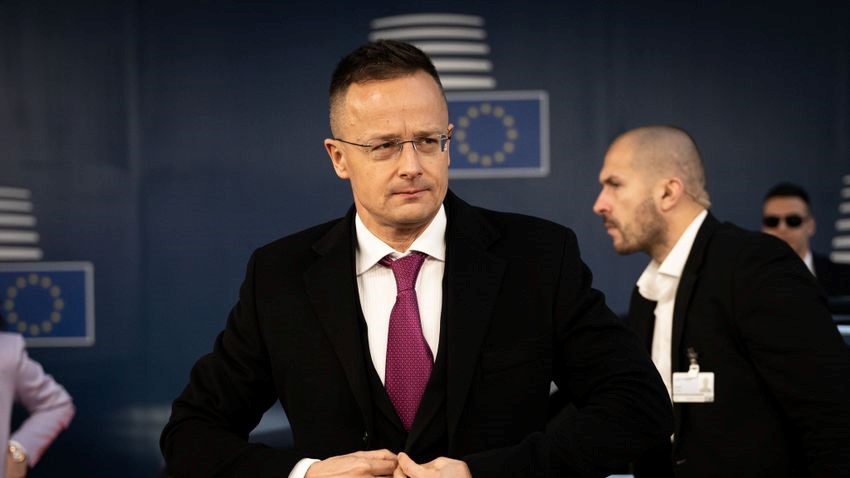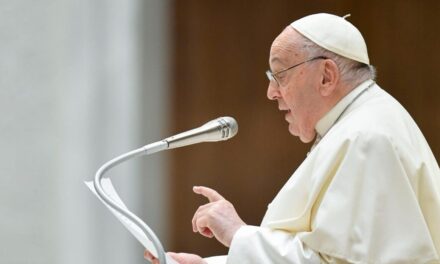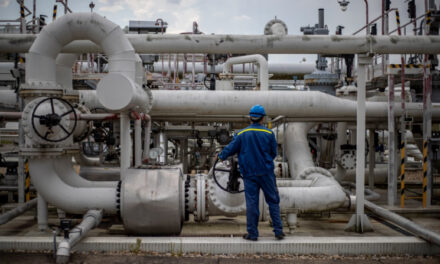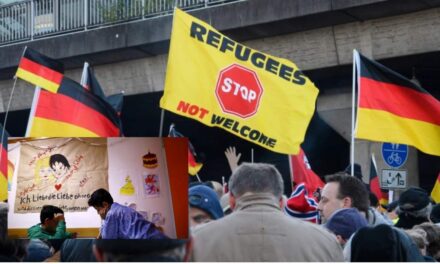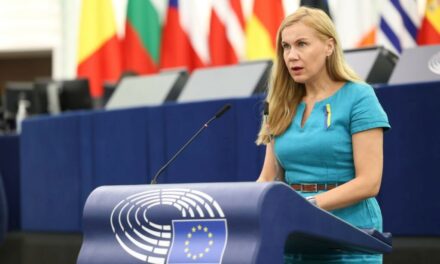According to the indications so far, it has been possible to obtain an exemption for Hungary from the planned EU oil price cap, which is essential from the point of view of guaranteeing the security of supply, but several dangerous proposals are still on the table, Minister of Foreign Affairs and Trade Péter Szijjártó announced on Thursday in Brussels.
According to the announcement of the Ministry of Foreign Affairs and Trade, at the press conference following the extraordinary meeting of the EU energy ministers, the head of the ministry reported that the proposal in its current form would not apply to pipeline transport, nor to sea transport, if it becomes necessary due to the impossibility of pipeline transport. which is important due to disruptions in transit in Ukraine. If this were not the case, it would lead to a decline in Russian deliveries and thus to an increase in prices.
Péter Szijjártó then touched on the further proposals of the European Commission, which, according to him, would also threaten the continent's energy security.
It was believed that the natural gas market solidarity measures awaiting adoption represent another "power drive" by Brussels in order to erode the energy policy sovereignty of the member states.
He added: due to the resistance of a significant part of the participants, there was no agreement on the issue.
The minister welcomed that, thanks to the work of our country, it was possible to achieve voluntariness in the area of the common natural gas procurement mechanism, so there is no need to be stuck in platforms that are "unfavorable to us".
However, he highlighted two elements in relation to the proposal. On the one hand, that based on this, the member states should inform the European Commission six weeks in advance if they wish to negotiate natural gas transport, while quick decisions are needed in the current crisis situation. Moreover, as he pointed out, the transfer of sensitive information would be a serious harm to interests.
"This is obviously nonsense, it's crazy, we don't even understand how it got into the proposal," he said.
The other objectionable element is that, in an emergency, if the member states have enough stored natural gas, they should transfer a part of it to certain countries facing difficulties.
"Imagine the situation where, in connection with the natural gas bought with the money of the Hungarian people, which we buy and put into storage for the use of the Hungarian people and the operation of the Hungarian economy, someone from Brussels can instruct us not to use it for the Hungarian people and companies ( ...), but should be given to another country".
He underlined: since the price is higher when the storage is filled than when it is taken out, the proposal would open the way for speculation, so no one would be interested in buying when it is stored, which would pose a huge supply security risk.
Péter Szijjártó announced that the negotiations on the gas cap had also begun, but no decision was reached, and for this purpose another extraordinary council meeting was called for December 13.
He called the proposal dangerous, unnecessary and inappropriate, saying that "in a certain price environment, it could cause shipments to Europe to be withheld or diverted to other regions", moreover, it does not comply with the decision made at the last meeting of the European Council.
As an example of the latter, he cited the fact that according to the accepted final statement, the price cap cannot affect long-term contracts in any way, but in this case this would not be the case, which is unacceptable to the Hungarian government.
"Long-term agreements cannot be affected by the gas price cap, we want to fight for an exemption for Hungary in this regard, and we do not support the solidarity mechanism, if it contains such unreasonable, insane, crazy proposals," he declared.
Finally, he stated: the energy crisis would be solved by increasing the amount of natural gas on the market, for this no supplier should be excluded, but new sources and transit routes should be included.
Source: MTI
Image source: Facebook

